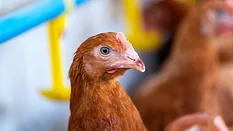
Chemical
Chemical contamination of food, beverages, and water include chemicals used in the growing or production of food, such as pesticides or veterinary drugs, as well as chemicals present in sanitizers, cleaning solutions, coatings, and packaging.
Articles
More ArticlesNever miss the latest news and trends driving the food safety industry
Newsletters | Website | eMagazine
JOIN TODAY!Copyright ©2026. All Rights Reserved BNP Media.
Design, CMS, Hosting & Web Development :: ePublishing



